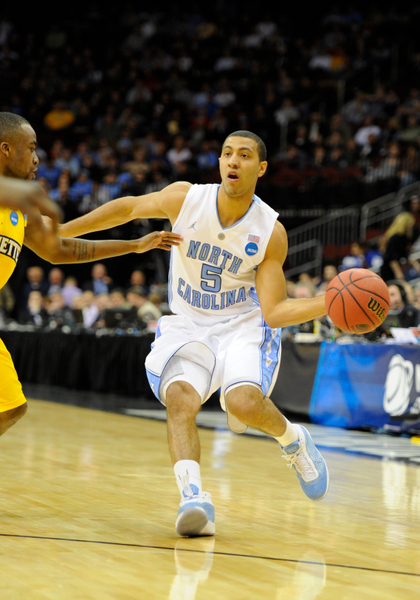Even Without Kendall Marshall, UNC is a Better Passing Team This Year
Posted by KCarpenter on March 4th, 2013Quick gut check: Is this year’s North Carolina team better at moving the ball than last year’s team? My gut told me there was no chance, especially when that team had Kendall Marshall, the all-time ACC single season leader in assists. My gut was wrong. Well it’s possible that this team doesn’t quite have the passing flair of Marshall, but as a team, this group knows how to move the ball better than last year’s squad. The 2011-12 North Carolina team assisted on 58.1% of its made field goals as opposed to this year’s mark of 61.0%. It’s the best mark in the conference, and against Florida State on Sunday, the Tar Heels’ passing acumen was on full display.
North Carolina assisted on 20 out of 31 made field goals against the Seminoles, a 64.5% mark for the game. While the Roy Williams era North Carolina teams have always racked up assists at a pretty quick rate, the way that this team does it is fairly unusual. The norm for UNC has been a dominant point guard in the mold of Raymond Felton, Ty Lawson, and Kendall Marshall — floor generals who exert a tight control over the game. Yet young Marcus Paige hardly fits that description. Granted, Paige has been playing with increased confidence and better passing during the Tar Heels’ five-game winning streak, amassing an easy nine assists during the course of the game. But, for the most part, this year, UNC’s assists have come from a three-headed monster.
Paige has 119 assists on the season, yet shooting guard Dexter Strickland (and backup point guard for about seven minutes per game) has 112 assists. Paige is fourth on the list of conference leaders in assists, while Strickland is sixth. For perspective, this means that Strickland has amassed more assists than the majority of starting point guards in the conference; not a bad feat for any back-up at the position, let alone one who is truly a shooting guard. His four assists against the Seminoles isn’t crazy. As someone expected to solely run the offense in stretches, his assist totals make some sense.
The case of Reggie Bullock is more difficult to explain. Bullock is the starting power forward in UNC’s “small” lineup. He has amassed 78 assists so far this season, the 14th best mark in the conference and a higher total than any player at Wake Forest and yes, Florida State. Bullock had five assists against the Seminoles, and as the season rolls on, I become more and more convinced that his passing is an underrated element in UNC’s recent success. The ability of Roy Williams to not just cover the court with shooters but also in capable and willing passers makes the offense more unpredictable and therefore harder to stop. While these three are far and away the best passers on the team, the relatively high assist percentages of wing players like Leslie McDonald and P.J. Hairston point to a team-wide culture that promotes constant ball movement on the perimeter.
The three-point shooting, speed and transition play of this year’s Tar Heels are justly credited for their role in turning a sputtering season around. Yet the game against Florida State reminds us that a lot of the power of UNC’s offense stems from some truly excellent and impressive team-wide passing.










































